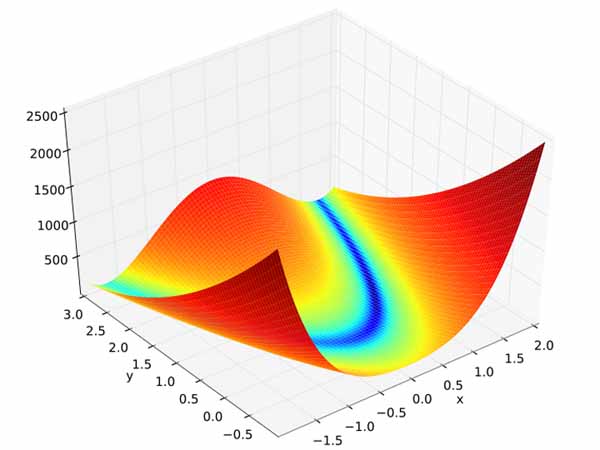
Optimal Control and Estimation
MAE 546
Princeton University
School of Engineering and Applied Science
Department of Mechanical and Aerospace Engineering
Spring 2018
Tuesday and Thursday, 3-4:20 pm
Engineering Quadrangle

Designing control logic that commands a dynamic system to maximize performance while minimizing cost is a common objective in such diverse fields as economics, medicine, robotics, chemical process control, and vehicle engineering. This course presents mathematical foundations and numerical methods for optimal control of these systems. The course explores conditions for deterministic optimality of nonlinear systems, effects of state and control constraints, singular control, parametric and gradient-based optimization, and linear, neighboring-optimal feedback control. Linear-quadratic (LQ) control is examined via time-domain and frequency-domain analyses.
Disturbances and measurement error can affect the quality of optimal control. These factors are accounted for by including optimal linear and nonlinear state estimation in the design process. The Kalman filter, Extended Kalman Filter, particle filters, and linear-quadratic-Gaussian (LQG) regulator present underlying structures for this discussion. Model-referenced control systems that adapt to changing systems parameters are introduced, and robustness of control in the presence of system parameter uncertainty is investigated.


Titles of Previous Term Papers
- Approximate Output Tracking Using Nonlinear Cost Minimization for Non-Minimum Phase CTOL Aircraft Model
- Estimation and Control of a Low-Order Model of Transitional Channel Flow
- Estimation of Foot Reaction Forces of a Running Cockroach
- Study of Optimal Control for Nuclear Reactors
- Stochastic Optimal Control of Resistive Wall Mode in a Tokamak
- Optimal Control and Estimation of a Firing Neuron
- Kalman Filter Applications for Multiconjugate Adaptive Optics
- Time-Optimal Controller for Multiple Vehicle Velocity and Position Placement in the Phase Plane
- Optimal Estimation of the Communication Graph in Multi-Agent Consensus Systems
- Optimal Video Tracking of Multiple Fish with Kalman Filters
- Optimal Control and Estimation of a Deformable Mirror using Two-Actuators
- Trajectory Optimization for Multi-Agent Collision Avoidance
- Optimal Control of a Two-Strain Tuberculosis Epidemic
- Time-of-Day Pricing for Internet Service Providers: Streaming Sessions
- Optimal Control and Estimation for a UAV Helicopter
- Control of Output Trajectories in Networks of Phase Oscillators using an ANN Mode-Based Predictive Algorithm
- Identification and Control of an HIV Dynamic Model Using a State-Dependent Linear-Quadratic Controller and Nonlinear Estimation
- State Estimation and Feedback Control for a Pitching Airfoil
- Optimal Control of a Stochastic System
- Stochastic Optimal Control of Jet Transport Glide Speed
- Nonlinear State Estimation for a Tracking Gimbal
- Optimal Price Discovery in Finance
- Optimal Laser Control of Molecular Photoassociation Using Fast Monotonically Convergent Algorithms
- Deterministic Optimisation of Control Histories for a Nonlinear Model of Honeybees and the Parasite Varroa Destructor
- Optimal Ground-Source Heat Pump Borehole Design Guided by Dynamic Modeling
- Adaptive Kalman Filter for Online Parameter Estimation of Deformable Mirror Model Parameters
- Optimal Treatment of Biofilm Producing Bacteria in Cystic Fibrosis Pulmonary Infections (Pseudomonas Aureginosa)
- Wavefront Estimation with a Sparse Aperture Mask using a Kalman Filter
- "Plague Inc.": What a Smart Pathogen Should Be
- Two DM Probe Test for High-Contrast Wavefront Estimation
- Parameter Identification of a Low-Dimensional State-Space Representation of the Theodorsen Model via an Extended Kalman Filter
- Fuel Optimal Trajectories for Low Thrust Engines
- Neighboring-Optimal Control with Quasi-linear Kalman filter and Model Predictive Control
- System Identification of a Steam Generator
- Sunspot Data Analysis Using DMD-Based Techniques
- Data-Driven Optimal Targeting Control of Chaotic Dynamical Systems with Application to the Forced Duffing Equation
- Non-Linear State Estimator for Automobile Dynamics
- Optimal Estimation of Dynamic Attitude with Extended Kalman Filter
- Neural Networks for Control History Optimization.
- Nonlinear Estimator Comparison for a Cubic Spring
- Optimal Control of a Quadcopter
- Multi-Agent Decision Dynamics
- Nuclear Fusion Burn Control
- Liquid Free-Surface Dynamic Control
- Intrinsic Kalman Filter on Lie Groups
- Cubesat Magnetic Torquer Control
- Spacecraft Formation Control
The primary reference for this course is OPTIMAL CONTROL AND ESTIMATION, R. F. Stengel, Dover Publications, 1994.
Additional books that may be useful for reference include:
- Anderson, B., and Moore, J., Optimal Control: Linear-Quadratic Methods, Prentice Hall, 1990.
- Brogan, W., Modern Control Theory, Prentice-Hall, 1991.
- Bryson , A. E., Jr., and Ho, Y. C., Applied Optimal Control, Hemisphere, 1975.
- Dickinson, B., Systems: Analysis, Design, and Computation, Prentice Hall, 1991.
- Gelb, A., ed., Applied Optimal Estimation, MIT Press, 1974.
- Graham, A., Kronecker Products and Matrix Calculus: with Applications, J. Wiley, 1981.
- Grantham, W., and Vincent, T., Modern Control Systems Analysis and Design, Wiley, 1993.
- Hull, D., Optimal Control Theory for Applications, Springer-Verlag, 2003.
- Kwakernaak, H., and Sivan, R., Linear Optimal Control Systems, Wiley, 1972.
- Maciejowski, J., Multivariable Feedback Design, Addison-Wesley, 1989.
- Maybeck, P., Stochastic Models, Estimation, and Control, Academic Press, 1982.
- Skelton, R., Dynamic Systems Control, Wiley, 1988.
- Zhou, Z., Doyle, J., and Glover, K., Robust and Optimal Control, Prentice Hall, 1996.



